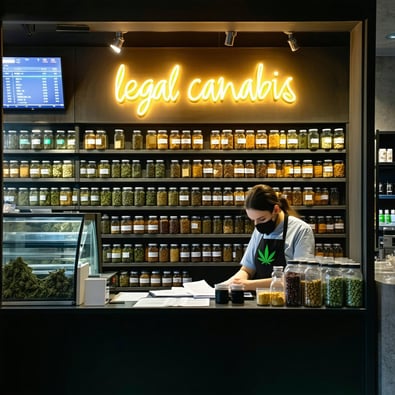At a serene lakeside resort nestled in Missouri’s Ozark Mountains, guests aren’t handed a glass of champagne at check-in. Instead, they’re welcomed with a cannabis-infused mocktail and a personalized wellness itinerary. Thousands of miles away, on the sun-drenched beaches of Koh Samui, Thailand, visitors at a boutique hotel book sessions with herbalists who craft tailored blends of infused teas and edibles to enhance yoga practices or breathwork experiences.
This isn’t just a quirky twist on traditional travel or a gimmicky “420-friendly” destination. What’s unfolding across the globe is a deeper, more intentional movement.
Cannabis-centric resorts are gaining traction from North America to Southeast Asia and beyond, designed for travelers who value holistic health and are curious about plant medicine. These travelers aren’t necessarily looking to get high—they’re seeking mindful environments where cannabis is integrated into spa treatments, guided meditations, culinary experiences, and community gatherings.
And the numbers show this is more than a passing trend. In 2022, cannabis tourism generated more than $17 billion globally. That figure is expected to surpass $23 billion by 2030 as legalization spreads and consumer preferences continue to evolve. This signals a seismic shift in the hospitality industry, with cannabis tourism stepping out of the shadows and into the mainstream.
Take Colorado, for example. One of the earliest adopters of recreational cannabis, the state has become a case study in the economic potential of cannabis tourism. According to a study published in the Journal of Hospitality & Tourism Research, hotels in Colorado experienced a 25.2% increase in monthly revenue following legalization. What’s more, this boost wasn’t a short-term spike—it persisted for over six years, illustrating cannabis tourism’s lasting impact on local economies.
Yet for many travelers, cannabis is not the main attraction—it’s just one part of a broader journey. “Most travelers are not coming only for cannabis. They are travelers first, with wellness, curiosity and immersion driving their decisions,” says Laura Hand, board member of the Cannabis Travel Association International. “Cannabis is simply one piece of a much larger personal journey.”
As travel continues to shift toward meaningful, experience-driven offerings, cannabis is emerging as a powerful tool for transformation. It’s no longer just about the product—it’s about the purpose. And for a growing number of travelers, that purpose includes healing, exploration, and intentional connection—with self, others, and the natural world.





